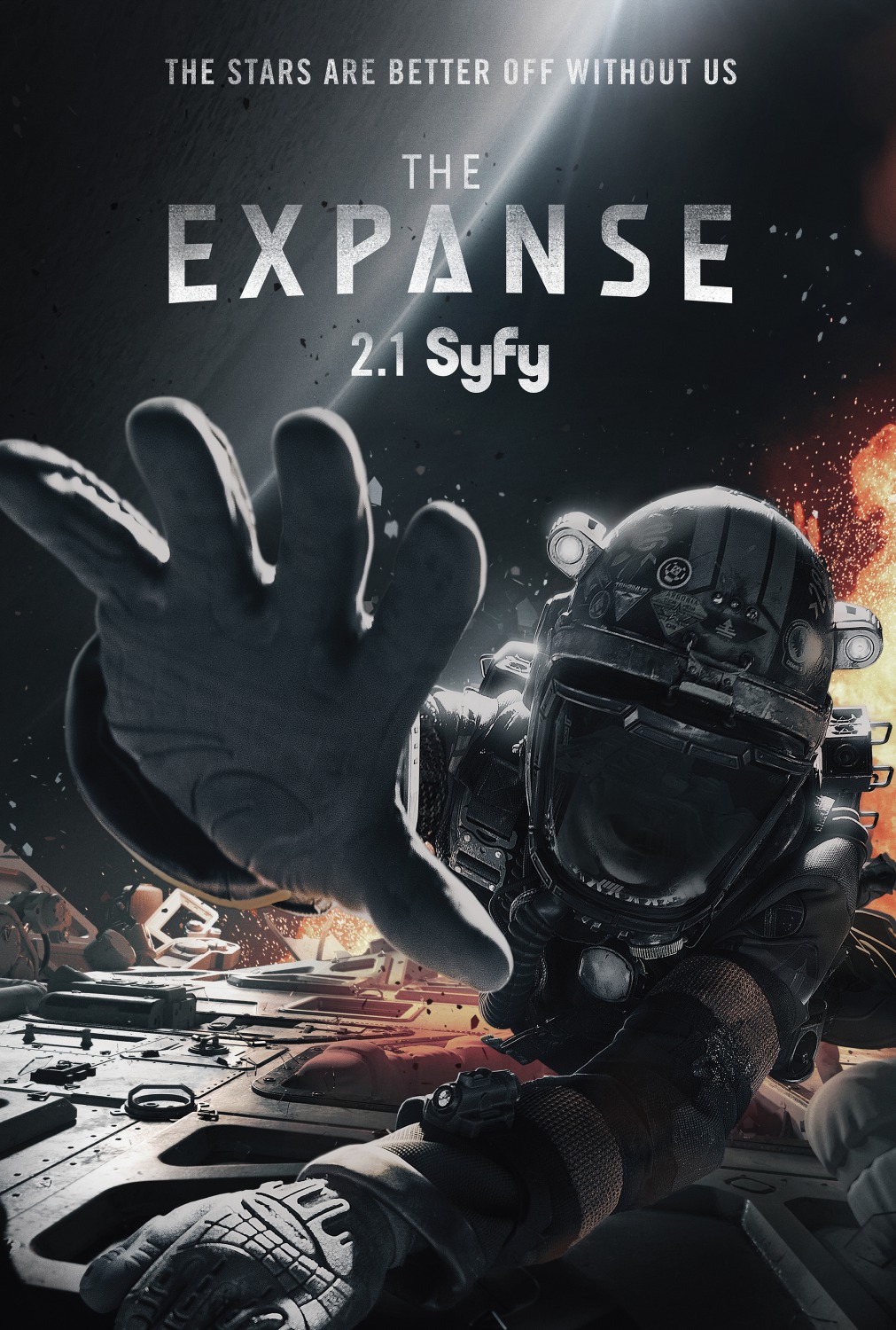
The Expanse season 2 poster


Most sci-fi things that take place in the future focus on how the future’s going to be different then today. If that future is Star Trek, then it’s this wonderful place where mankind zooms around the cosmos in great ships meeting exciting alien species and having wonderful adventures. If it’s the future of something like Blade Runner, then it’s a dark and dreary place where it always rains, everyone smokes and life is terrible.
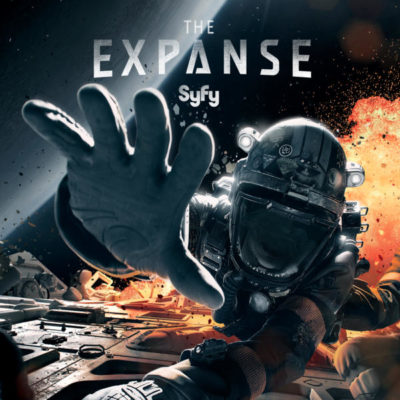 Most sci-fi futures are in place to contrast our own. That’s why I think the future depicted in the SyFy series The Expanse is so interesting — unlike the rest of sci-fi the future in that show is much like our present. It’s almost like the message of The Expanse is, “The future will be exactly like the present which means things will still kind’a suck.”
Most sci-fi futures are in place to contrast our own. That’s why I think the future depicted in the SyFy series The Expanse is so interesting — unlike the rest of sci-fi the future in that show is much like our present. It’s almost like the message of The Expanse is, “The future will be exactly like the present which means things will still kind’a suck.”
Based on the series of Leviathan Wakes novels by James S. A. Corey, in The Expanse, it’s the near-future where we’ve moved off the Earth and have colonized Mars and most of the near-Earth asteroids. Those who live on Earth have the most power, Mars the second and the asteroids a distant third if any at all. But, without spoiling things, something happens in the depths of space that threatens the future of mankind and it’s up to the “Belters” who live on the asteroids to stop this threat before it gets to the Earth and ends everything. Which, admittedly, sounds like something that’s been done many times before. But I think how it’s done on The Expanse that makes this series so unique.
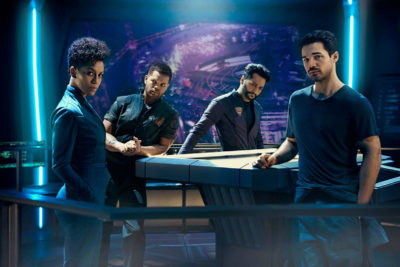
These three groups are represented by the crew of the ship the Rocinante captained by Jim Holden (Steven Strait) who have proof that something’s going on in the dark depths of the solar system if only anyone would listen. UN Ambassador Chrisjen Avasarala (Shohreh Aghdashloo) on Earth who’s trying to avert a war with Mars as ships begin disappearing and each blames the other. Detective Joe Miller (Thomas Jane) who works on asteroid Eros and is hired to investigate the disappearance of a young woman and finds more than he bargained for. And a space station chief Fred Johnson (Chad L. Coleman) who represents the interests of the Belters even if he’s got a dark secret in his past he’s trying to make amends for.
Except for the Avasarala character, these people aren’t the best and brightest. They’re not the special forces, aren’t Sherlock Holmes and for the most part have low-level jobs without a lot of responsibilities just like most people today. But they’re all thrown into this conflict where regardless of their status, they all have to step up and do their best and stop this greater threat while trying to overcome their limitations.
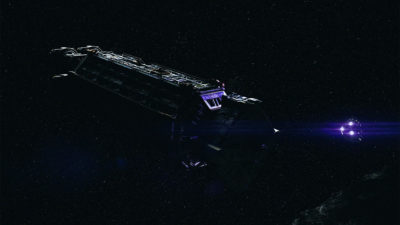
The interesting thing about all these characters and stories is that while there’s this overarching storyline in The Expanse, for the most part the paths of these characters don’t really cross until the end of the season. It’s almost like each of them all are working at different parts of the plot and really don’t know what any other group is doing and it’s not until the end of the first season when characters stories begin crashing into one and other that they get this fuller picture of what’s been going on the whole season.
The characters of The Expanse don’t live in this wonderland among the stars, they live in a place where what separates them from instant, boiling death is sometimes just a few millimeters of plastic. A place where the air can, and sometimes does, literally run out. And in a place where if something breaks and you don’t have a spare or can’t fix it yourself…well, you get the picture. But what’s so different here is that the characters of The Expanse aren’t frightened of all this. To them, their reality is a horrific banality that comes from living in space.
It’s like someone of today who’s house is next to a busy intersection. They know that at any moment an accident outside might send a truck careening through their home. And they might think about this when they first move in but later on they don’t think about it whatsoever. And the same holds true for the people of The Expanse who just accept that their day to day lives might at any moment be interrupted by something that might end everything.
The second season of The Expanse premiers February 1 on SyFy.
Superficially, there doesn’t seem to be much resemblance between the classic version of Doctor Who that ran from 1963–1989 and the modern one that began in 2006. If the classic Doctor Who looked slightly cheap then the modern one looks like a little money was spent on each episode. If the classic Doctor Who had mostly self-contained stories, then the modern one has season, if not series, long stories. But I think in tone the modern version of Doctor Who is actually a lot closer to the classic one than it might seem from the outside which is exemplified in the latest Christmas “The Return of Doctor Mysterio” episode.
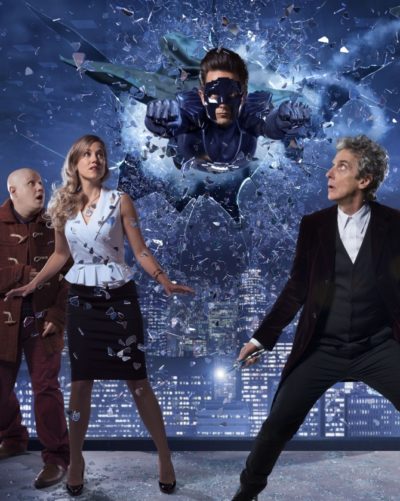 This time, the Doctor (Peter Capaldi) finds himself in New York where a group of aliens are set on taking over the world. Using a cover corporation called “Harmony Shoals,” these aliens just so happen to be the size and shape of our brains and their plan includes luring people to their buildings around the planet and removing the brains of all the politicians on the globe and replacing them with these brain-looking aliens. In an homage to the Superman story, investigating Harmony Shoals is dogged reporter Lucy Fletcher (Charity Wakefield) who meets the Doctor and his assistant (Matt Lucas) who are also scoping out the corporation. And there’s also a Superman-like superhero flying around New York City called the Ghost aka Grant Gordon (Justin Chatwin) who the Doctor knows and accidentally created decades prior when he met him as a child. As the aliens begin to put their devious plan into motion and threaten the fate of the entire planet, it’s more of a question as to whether Lucy will ever figure out that the Ghost is really her nanny Grant Gordon as to if the aliens will succeed in taking over the planet.
This time, the Doctor (Peter Capaldi) finds himself in New York where a group of aliens are set on taking over the world. Using a cover corporation called “Harmony Shoals,” these aliens just so happen to be the size and shape of our brains and their plan includes luring people to their buildings around the planet and removing the brains of all the politicians on the globe and replacing them with these brain-looking aliens. In an homage to the Superman story, investigating Harmony Shoals is dogged reporter Lucy Fletcher (Charity Wakefield) who meets the Doctor and his assistant (Matt Lucas) who are also scoping out the corporation. And there’s also a Superman-like superhero flying around New York City called the Ghost aka Grant Gordon (Justin Chatwin) who the Doctor knows and accidentally created decades prior when he met him as a child. As the aliens begin to put their devious plan into motion and threaten the fate of the entire planet, it’s more of a question as to whether Lucy will ever figure out that the Ghost is really her nanny Grant Gordon as to if the aliens will succeed in taking over the planet.
Which to me is a story only Doctor Who, either classic or modern, could do with a straight face and get away with it, to take a story that might seem silly and goody and present them as a straight sci-fi/fantasy story without irony or laughs.
And I think that’s part of the strengths and weaknesses of Doctor Who. Right now most critically acclaimed sci-fi series push hard in the direction of gritty reality, of which Doctor Who certainly doesn’t. Doctor Who is a sort of anthesis series to heavy shows like The Expanse and Westworld and is also a bit of an anachronism to older styles of storytelling. However, that might also be a good thing for Doctor Who — while every other series can be seen as being of our times Doctor Who instead stands out as a series slightly out of time, more harkening back to the sci-fi series of the past than today. And that might help the series for viewers in the future. Doctor Who might never feel old and dated since it’s always been a bit old and dated to begin with whereas the other series of our time might feel too much of our time and not relatable to future viewers.
Over the past year I’ve been reviewing new episodes of TV series here in these weekly Direct Beams Comms. I don’t pretend to review all or even most new comedies and dramas released but I did review all the comedies and dramas I watched in 2016 which turned out to be 45 brand new TV series. If you consider that most TV series I watch tend to air between five and 13 episodes the means there’s somewhere between 225 and 585 episodes of TV out there of just these new shows I watched.
In addition, I watched 15 shows that were in their second or further seasons meaning there’s anywhere between 75 and 195 episodes of those shows I watched too.
Which is a lot of TV — that doesn’t seem to be stopping anytime soon.
Looking out over the calendar there’s new TV series I’m interested in checking out each week from now until mid-February. And that’s just counting NEW series, not returning ones. And my guess is that calendar stops in February not because there’s a break in new shows being launched but because that’s all the further out the calendars I found online happen to go out.
The one good thing with all these hours of TV is that since new series are being launched all year long it means there’s a lot of TV watching for me that’s spread out over the months. But that also means that there’s somewhat of a commitment on my part to watch all these shows since there are always new ones due out next week.
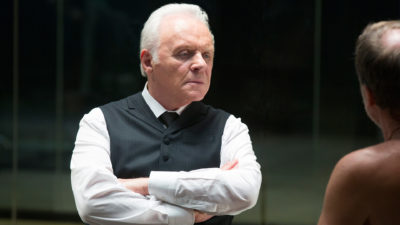
What’s most fascinating is that while I watched around 60 scripted shows last season, this represents only about 13% of the total amount of new series out there, more than 450 this year in a recent report. Which is the best of times since there are so many series channels are willing to take chances on TV shows that wouldn’t ever have gotten made a few years ago. Even edited for content I can’t imagine a series like Westworld ever being shown on network or even cable TV in its current form without being turned into something more episodic even this decade. And I can’t ever see something like the five part documentary series O.J.: Made in America having aired on ESPN of all places finding a TV home other than right now. We might have gotten a one hour special on O.J. years ago, but a five part multi-night documentary would have been out of the question.
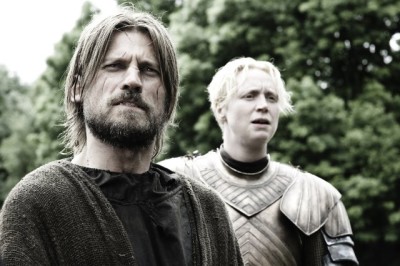
All of which makes me wonder, if we’re living in this wonderful time where there are quite literally AMAZING brand-new TV series being created and released year after year, how does all this sustain itself? Right now we’re living in a time where there are all these different content channels from network to cable to streaming all looking for series and all willing to shell out big-bucks in some cases to get it. (Reportedly a single season of Game of Thrones costs HBO about $60 million and Westworld $100.) But they’re willing to spend this money right now because all these channels are trying to stake their claim and be the one place people go for their entertainment in the future and are willing to spend, spend and spend to get this.
But what happens in a few years when the economics change, maybe people are less interested in watching scripted series and there are the inevitable channel collapses, acquisitions and mergers? What happens then, I think, are channels and networks less willing to spend such amounts on TV series and less willing to fund loads and loads of new shows. And I don’t think this day is that far in the future — it really can’t be with the amount of money being spent and lost on series.
People always talk about how great the movies of the 1970s were and how movies since were never able to capture that same spark. Or, if they were able to capture that spark it was only for a movie or two or for a short period of time. I think that’s what’s happening with TV series right now — we’re living in this golden age of TV with all these different choices and options where there are all these amazing shows and it just can’t last.
“Are all your plans always this vague?”
The 52 Most Anticipated Movies of 2017
I’m not sure I’ve ever been connected to a show as I am to Better Call Saul. I’m so interested in each new episode that I’ll actually get up a bit early for work so I can watch 10 or 15 minutes of the latest episode via DVR, even though I know it’ll be the first thing I watch the minute I get home in the evening.
If the first season of Better Call Saul was all about Jimmy McGill (Bob Odenkirk), a low-level attorney starting to flirt with a life of crime, then the second was about McGill if not embracing whole heartedly becoming a “bad guy,” not entirely turning his back on doing bad things if that means him getting an advantage on the competition either.
McGill has it all — an amazing job, an expensive car and a wonderful girlfriend. But for whatever reason it’s just not enough and rather than accepting his spectacular fortune he instead chooses to intentionally tank his career at every turn. Be it producing and airing a questionable TV commercial for the firm he works for or even setting up his brother to take an embarrassing career fall even if he kind’a deserves it.
The stories of Better Call Saul are deceptively simple. There aren’t any life or death stakes and much of the series rides on McGill navigating the slopes of questionable business practices with him slowly becoming the bad guy. But the things he does aren’t too bad and usually affect only a few people. Where Better Call Saul excels again and again and again is with the characters. They’re so nuanced and complex and unique that the underlying story almost doesn’t matter here — it’s what the characters are doing and how they interact with each other that makes Better Call Saul one of the best shows of the decade.
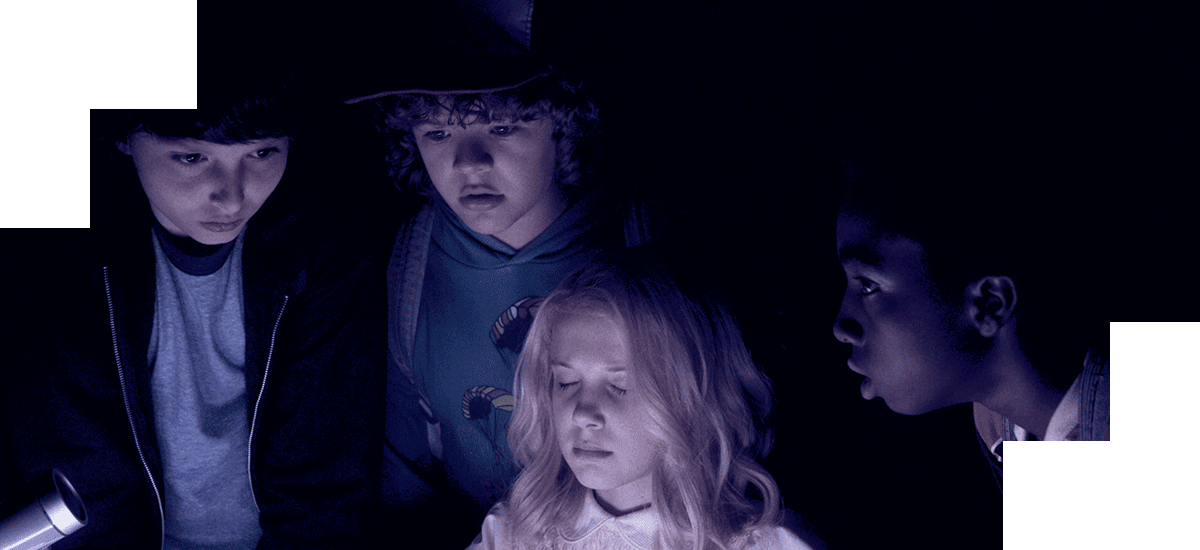
What can I say about Stranger Things that hasn’t been discussed ad nauseam since the series debuted last summer? This early 1980s period show about a little girl with strange powers who escapes from an institution and is taken in by three boys was the highlight of my, and I suspect many other people’s, summer. Stranger Things was this weird, wonderful unexpected bolt of goodness that quite honestly I didn’t think was going to work when I first heard about it. The marketing from the show screamed “THIS IS GOING TO BE LIKE STEVEN SPIELBERG!!!” and I’d been burned by that with the movie Super 8 that also featured a group of boys and a girl that period who come across some weirdness going on around their small-town. Heck, Super 8, much like Stranger Things, is shot in such a way to be a love-letter to Spielberg.
Except that where Super 8 was a disappointment is that while the film looked and had some of the themes of Spielberg it was totally missing the emotions of Spielberg. Which is what Stranger Things got totally right, it doesn’t look quite as much like a Spielberg movie as the marketing materials would have you believe but it’s overflowing with the heart of something Spielberg would have been involved with.
That and a sense of underlying creepy horror that feels like it’s some long-forgotten Stephen King book put to TV. But in a good way.
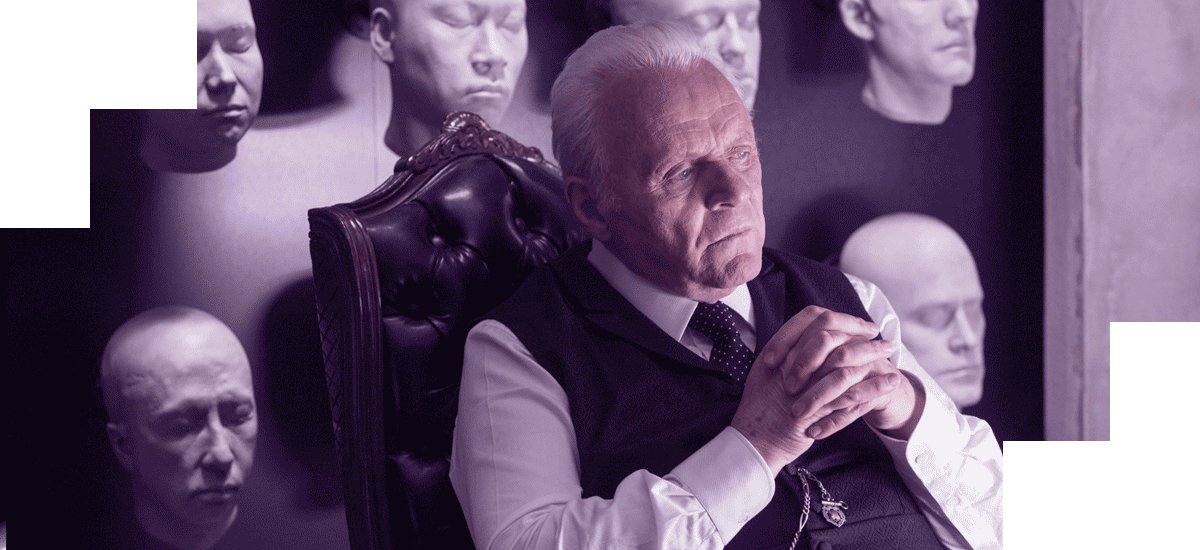
As I began writing this article in October Westworld was much lower on this list. But as time went on and I saw more and more episodes the series it kept rising higher and higher here. And that’s saying a lot for a show that seemed to be damaged goods before it even aired with it arriving more than a year late after having suffered through “script problems.” Yet almost from the beginning Westworld was a brilliant show that asked a lot of very interesting questions about the nature of reality and what it means to be human.
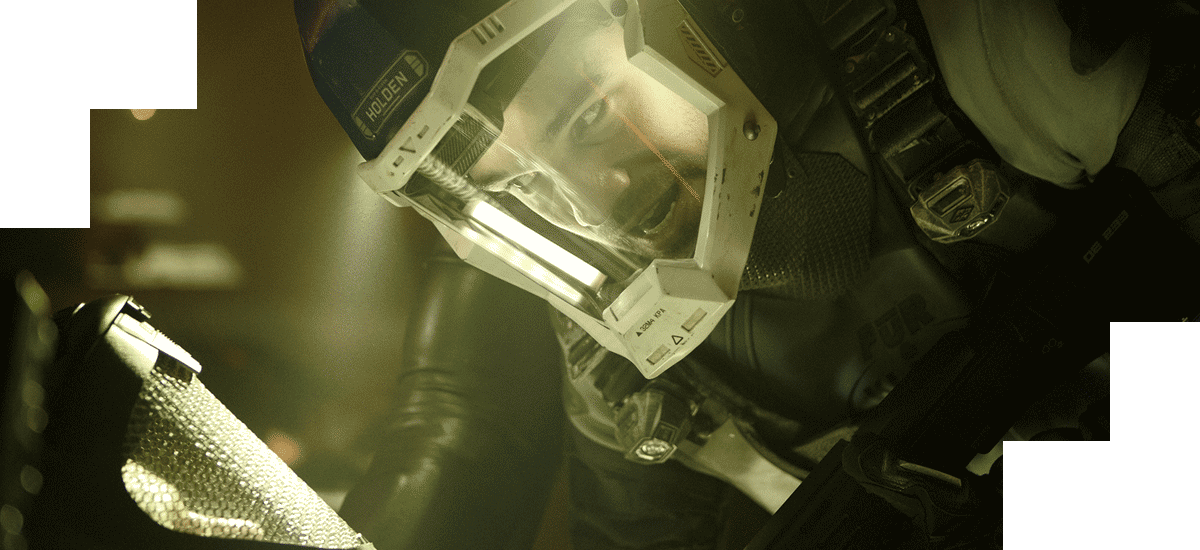
For years now, perhaps since the end of Battlestar Galactica, I’d been yearning for a new “very large ships in outer space” series. There’s just something about people out in the depths of the cosmos flying around in little tin cans that appeals to me. And while there’s been loads of “very large ships…” series that have sucked since BSG, the first good one to emerge since then is The Expanse on SyFy.
This series takes place in a future that’s near enough to right now that we can still recognize the architecture and people, but far enough away that some of this architecture is on asteroids zooming around the solar system and we can’t quite understand some of the characters who have new and different accents. And these characters live normal, ordinary and dull lives except the places they live in space are incredibly dangerous where one mistake can result in an agonizing death. Into all this are the survivors of a ship destroyed in an attack who hold the key to exposing a mystery that might just be the beginning of the end of mankind.
Honestly, I wasn’t expecting much from The Expanse because it’s on SyFy, a network known mostly for cruddy original movies mostly starring sharks and crummy original series post BSG. But The Expanse is quite different. Much like BSG it’s based on a previous work, here a series of books by James Corey, and much like BSG the storytelling in The Expanse is excellent.
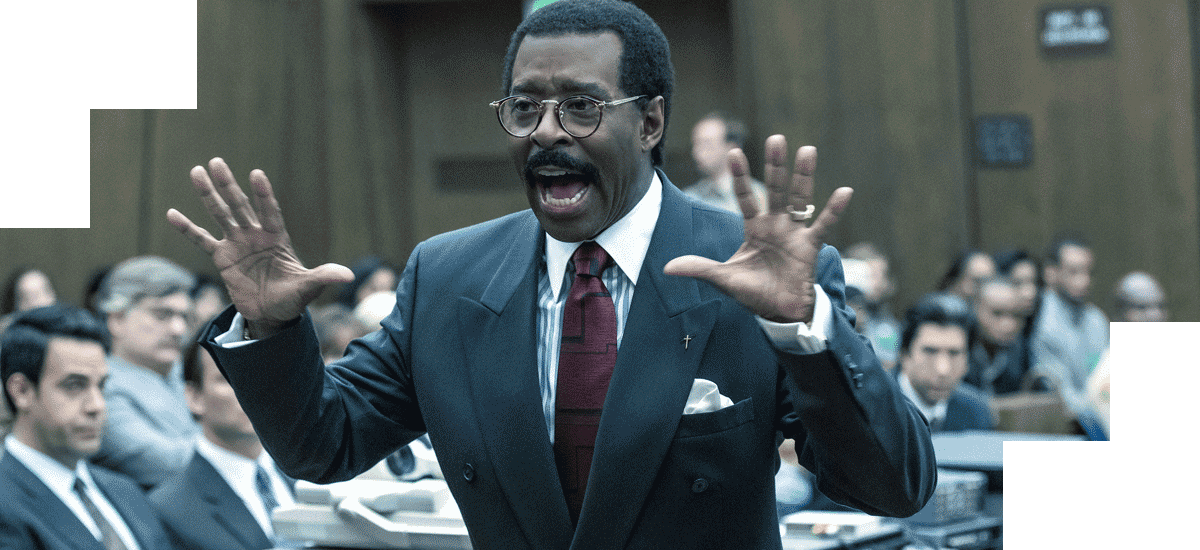
What new info can be gleaned from a crime and trial that took place more than 20 years ago and was covered and dissected by the media for years? That’s what I thought going into The People v. O. J. Simpson anyway since I’d lived through the whole Simpson media fiasco and aftermath. But I think that the clarity of years after the trial, being that it’s not yet another “torn from the headlines” series, made for some darn interesting TV here. Instead of focusing on the obvious, what everyone’s already seen from the constant media coverage when the trail took place, series creators Scott Alexander and Larry Karaszewski instead put the focus of the series on what happened when the cameras weren’t recording, behind the scenes at the courthouse and behind closed doors.
If you’ve yet to checkout The People v. O. J. Simpson because “you know how it ends,” take it from me that you really should watch The People v. O. J. Simpson because it’s one of the best things about this TV season.
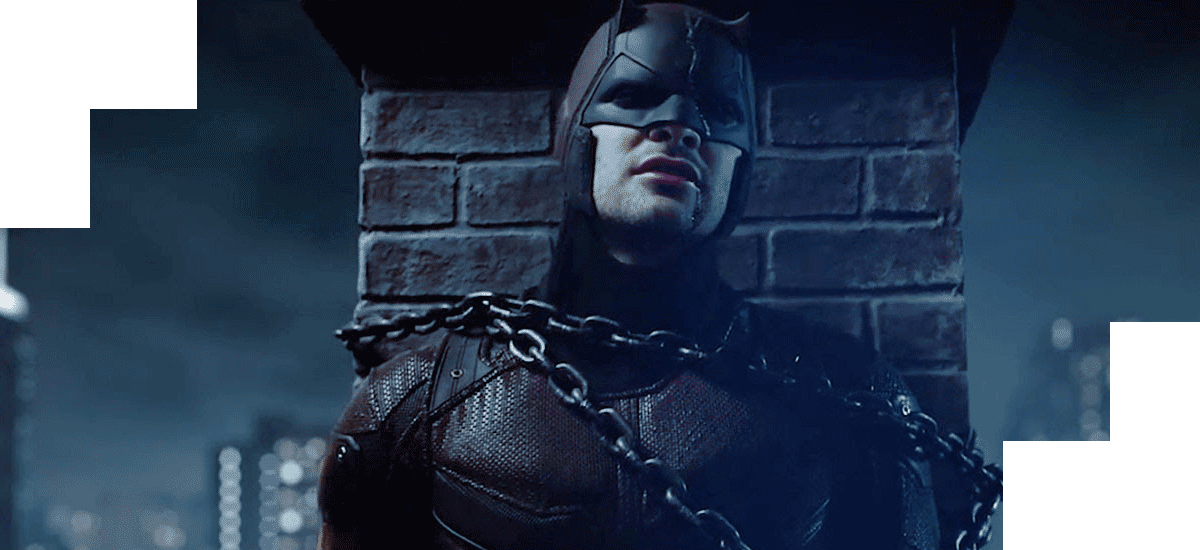
I was lukewarm with the first season of Daredevil on Netflix. It was good enough, but was essentially a 12.5 episode long character origin story with the Daredevil (Charlie Cox) character really only being introduced in the last episode. That being said, the second season really hit its stride with the character of Daredevil being joined by the likes of ex-girlfriend and now dangerous assassin Elektra (Elodie Yung), the vigilante Punisher (Jon Bernthal) and a group of zombiefied ninjas. And what’s not to love about “zombified ninjas?”
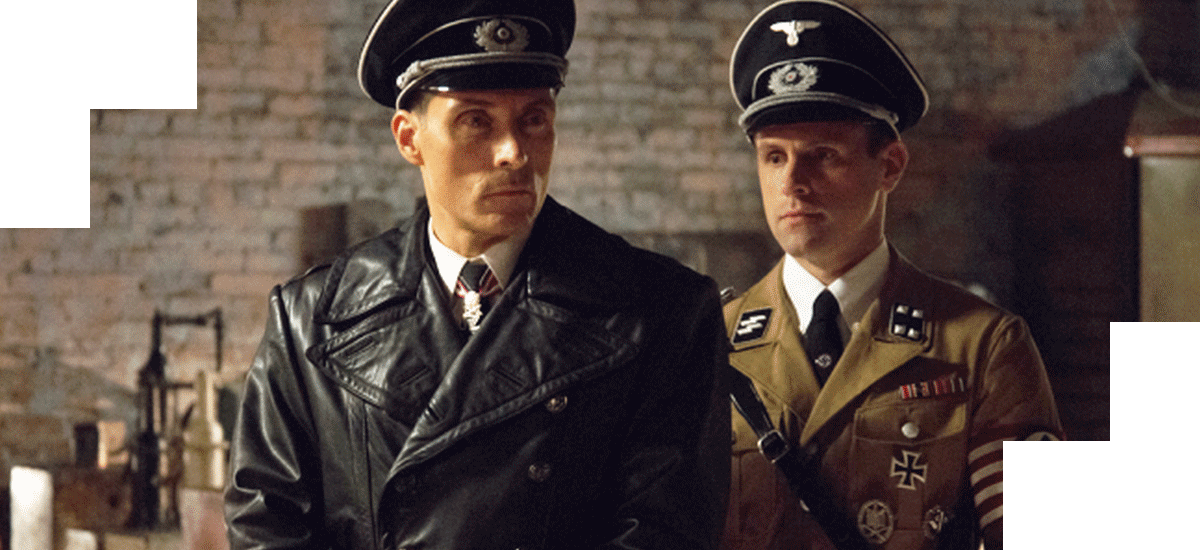
They say that computers need a “killer app,” or some program that’s so good people will buy the whole system just to get the application. And to me the “killer app” for the streaming service Amazon Prime is the series The Man in the High Castle since I subscribed to the service just to be able to watch this show. Set in an alternate America in the early 1960, in The Man in the High Castle it was the Axis powers who won WWII and Japan and Germany have split the US in half with the Germans taking everything east of the Rockies and Japanese west. At times the series is extremely disturbing with all freedoms that we know and love being dissolved under the occupations and people disappearing and being executed on the streets for minor offenses. But in The Man in the High Castle these weird cans of films start appearing that indicate their reality might be one of many, one where the Allies won WW2 and one where the Russians won it all themselves.
So, if this is true it means that for characters in The Man in the High Castle there might be a better world waiting for them and for the occupiers a threat to their total victory and their way of life.